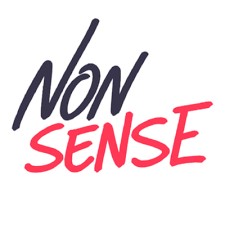
We learn from the CTV article above (a report without any open comment section by readers :)) that the Honourable Minister Guilbeault “won’t reverse change to Bill C-10“, which is the removal of “a section of the proposed legislation that excluded user-generated content from CRTC oversight”.
We then read at the very end of this brief report the following: “Guilbeault disputed that argument later [of MP Rachael Harder] Friday, saying Bill C-10 poses no threat to individual rights that the Conservatives are using public fear to stall or kill the legislation“.
Why doesn’t Minister Guilbeault explain to us with calm and logic how Bill C-10, with this change, is not a slippery slope that can limit our individual rights, as citizens (users of the internet)? Perhaps this can convince Bambi further? For now, she remains concerned about where our country is heading in the longer term.
This being said, she is curious to read about the position of Mr. Blanchet (Bloc Québécois) on this matter, even if Mr. Trudeau is likely counting only on Mr. Singh (NDP) to support Bill C-10. Mr. Blanchet may be too focused on all the other parts of Bill C-10 , which could be a gain for Canada, Québec, and the francophones in the rest of Canada (bravo to this protection of Canadian culture, including its French-speaking part). However, we all lose when one citizen’s freedom is diminished, whether we are English-, French-speaking, or allophones.

The changes to C-10 aren’t exactly my concern, albeit that they’re concerning in their own right, the legislation was *specifically* designed to suppress lawful speech in favour of “good Canadian content,” but that largely left the internet untouched.
To the people that aren’t convinced this will harm free speech: that’s what it’s for. It is specifically designed to suppress speech. The Canadian federal government is overly beaurocratic and operates through technocrats style oligarchy regardless of the governing political party. When you leave something like “good Canadian content” overly vague and then outsource to bureaucrats, you will necessarily end up with censorship in one way or another.
Who is deciding what is “good Canadian content?” Unelected bureaucrats? A minority government that lost the popular vote? Maybe let Canadians have a shot at deciding what their rights are…
YouTube video on the topic:
https://youtu.be/My6EUC6cTrw
Please explain why the Canadian laws that have existed for decades affecting print media should not be extended to electronic media? Surely, the law is same across the country be it in print or online? Also, CanCon has always benefitted Canadians since it came out 50 years ago. Even our TV commercials have been piped in to overlay American or other foreign advertising when the end users are Canadian. Same thing for protecting the French language which is in a minority position, don’t you agree?
Thanks Fred. Bambi agrees with you. However, the red flag is the removal of “a section of the proposed legislation that excluded user-generated content from CRTC oversight”.